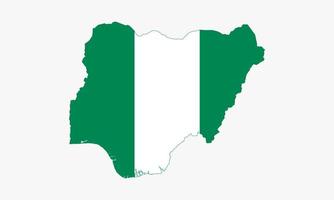By Sharon O. Ikeazor
Climate change has been rated continuously as being amongst the top global issues of our time. This is because the ways that greenhouse gas (GHG) emissions are altering the climate are strongly linked with other major global challenges, such as conflicts and unsafe migration. The rising temperatures from GHG emissions have several impacts on the environment, which include accelerated sea level rise and increased frequency and severity of droughts, floods, and other destructive events, such as the recent Australian bushfires. Thus, if nothing is done to mitigate and build resilience to climate change, increasing average surface temperatures and other impacts of climate change will continue to threaten our lives and livelihoods.
Already, the last seven years have been the warmest on record, according to scientists at NASA’s Goddard Institute for Space Studies. Similarly, six leading international datasets consolidated by the World Meteorological Organisation show that 2021 was the seventh consecutive year in which the global average surface temperature was more than 1 degree centigrade above pre-industrial levels. This unambiguous and alarming trend underscores the need for urgent climate action to safeguard the future of the most vulnerable regions of our planet. According to the Sixth Assessment Report of the Intergovernmental Panel on Climate Change (IPCC) released recently, West Africa is one of the global hotspots of high human vulnerability to climatic hazards. Nigeria is particularly vulnerable due to high dependence on climate-sensitive livelihoods, such as pastoralism, farming, and fishing.
In November 2021 at the COP26 in Glasgow, President Muhammadu Buhari made a commitment for Nigeria to achieve net zero emissions by 2060. Net zero simply refers to the balance between the amount of GHG produced and that removed from the atmosphere. Accordingly, we reach net zero when the amount of GHG added to the atmosphere is no more than that which is taken out. This is critical because scientific evidence suggests that achieving net zero will likely stop global warming. Although Nigeria’s net zero commitment is 10 years later than the United Nations’ set target of 2050, we are not the only country that has delayed the target. For example, China, which emits more GHG than the entire developed countries combined; and India, which is the third largest emitter (after China and the United States), have committed to achieving net zero by 2060 and 2070, respectively.
While many countries of the world have pledged to the United Nation’s 2060 net zero target, only Bhutan and Suriname have achieved carbon neutrality and are carbon negative (meaning that they remove more carbon than they emit). In Nigeria, our net zero pledge must include actions to curb all the GHG we produce. These should include direct emissions from owned or controlled sources; indirect emissions from the generation of purchased electricity, and other activities such as heating and cooling; and all other indirect emissions that occur in the value chain of businesses.
President Buhari signed the Nigerian Climate Change Bill on November 18, 2021, less than a week after the conclusion of the Glasgow Climate Pact. The Climate Change Act is a legal framework for achieving low GHG emissions, while ensuring green and sustainable economic growth. By the provision of the Act, Nigeria would form programmes to achieve its long-term goals on climate action, consistent with national development priorities. The Act also provides for the creation of a National Council on Climate Change, with the responsibility of decisions and policymaking on all climate change matters in Nigeria.
Other tasks of the Council include mobilising finance to support climate change action, the implementation of a mechanism for carbon emissions trading, and meeting Nationally Determined Contributions (NDC) by working together with the Nigerian Sovereign Green Bond. An NDC is a climate action plan aimed at cutting emissions and adapting to climate impacts. Each party to the Paris Agreement is expected to establish an NDC and update it every five years. Nigeria has updated its NDC, with 20 per cent emissions reduction unconditionally, and 47 per cent emissions reduction conditionally by 2030.
In addition to the Climate Change Act, the Buhari administration also approved Nigeria’s Energy Transition Plan (ETP) as a pathway toward achieving the net zero target. Thus far, Nigeria is the only African country with an ETP. The overall aim of the ETP is to lift over 100 million people out of poverty by driving economic growth, connecting the population to modern energy services, and managing the potential job loss in the hydrocarbon sector due to global decarbonisation. Very broadly, the ETP focuses on reducing emissions across sectors such as construction, manufacturing, oil and gas, transport, and power, as well as from cooking.
The initiatives to be put in place in relation to these sectors would be to ensure emissions reduction through the implementation of carbon capture and storage (CCS), direct air capture and hydrogen fuel technologies in the oil and gas, construction, and manufacturing sectors; deployment of electric vehicles and renewables in the transport and power sectors; and a shift to electricity and biogas-based cooking. Nigeria’s progress with the Climate Change Act and the ETP provides an opportunity for us to lead other African countries in climate policy, just as the United Kingdom leads the world by legally mandating GHG emissions reduction through the UK Climate Change Act of 2008.
It is generally agreed by scientists that CCS is a key strategy for decarbonising the industrial sectors. It is estimated that globally, CCS can contribute almost 20 per cent reduction in emissions by 2050, and its exclusion can cause up to 70 per cent increase in the global cost of reaching emissions reduction targets. Despite the CCS being a technically proven technology, some uncertainties and challenges remain, which may hinder fast and effective technology deployment. To this extent, early this year, the International Finance Corporation (IFC) and the World Bank have begun to work with the Nigerian government to develop a domestic market for carbon capture utilisation and storage (CCUS) for industrial emissions.
Similarly, with support from the International Energy Agency, the Nigerian government, under the leadership of the vice president, Professor Yemi Osinbajo, has developed a National CCUS Work Programme. The IFC/World Bank engagement, termed the Industrial Carbon Dioxide Utilisation and Storage in Nigeria: Diagnostics and Scoping (ICCUS D&S), aims to provide information on the effectiveness of industrial CCUS in Nigeria as a first step towards promoting knowledge sharing and providing recommendations for technology deployment by stakeholders.
Also, the CCUS Work Programme is aimed at outlining the requisite tasks and activities for CCUS adoption, from pilot to large-scale integrated projects. These initiatives would fast track Nigeria’s ETP and help reach the net zero target. It is worthy of note that the commencement of CCUS projects would make it the second CCS/CCUS project ever conducted on the African continent. The first CCS project was deployed at In Salah, Algeria in 2004. In Salah was a world-pioneering onshore gas field project, which received carbon dioxide from the In Salah oil field, but operations were discontinued in 2011 over fears of storage security.
At the resumed fifth session of the United Nations Environment Assembly held earlier this year in Nairobi, the Nigerian government announced the development and implementation of the new National Forest Policy, aimed at promoting sustainable forest management practices. This is to ensure sustainable increase in the economic, social, and environmental benefits for the country’s present and future generations. The new Forest Policy is in line with the national target of growing Nigeria’s total forest cover from 10 to 25 per cent by 2020 and it is guided by the need for the forests to serve as a veritable carbon sink for climate change mitigation.
As part of our transition to a low carbon economy, Nigeria has identified natural gas as a transition fuel for achieving net zero in 2060. This is mainly because natural gas has more economic viability, in comparison to emerging renewables, and fewer polluting effects, vis-à-vis other fossil fuels. Also, the lower energy density of gas, in comparison to other fossil fuels, means that transportation via pipelines or as liquified natural gas, takes a relatively higher share of the delivered cost, such that the geographical proximity to resource-rich areas is a significant determining factor for affordability.
Still, natural gas is advantageous as a driver of the energy transition because of its key role in the scaling up of hydrogen fuel production and transport. This is especially important to be highlighted, given that the European Union (EU), amongst others, have predicted that hydrogen fuel will play a central role in a future climate-neutral economy. With nearly 200 trillion cubic feet of proven gas reserves, Nigeria’s gas is more than three times its oil reserves. Already, the Nigerian government is putting efforts toward utilising these abundant natural gas resources by constructing the Ajaokuta-Kaduna-Kano (AKK) pipeline. This is a 614-kilometre-long natural gas pipeline that was commissioned by President Buhari in July 2020 and is due to be completed in 24 months.
The project forms phase one of the Trans-Nigeria Gas Pipeline, which is expected to transport 3,500 million metric standard cubic feet per day of dehydrated wet gas from several gas gathering projects in the southern part of Nigeria. Upon completion, the AKK project would create a steady gas supply network that reduces the large volume of gas flared annually in Nigeria, along with the resultant environmental impacts.
In a world where natural gas plays a critical role in energy production, Nigeria is strategically advantaged in not only utilising gas to meet domestic needs, but also in increasing exports to meet global demands and hence boost revenue. For example, the ongoing Russia-Ukraine war and the consequent sanctions imposed on Russia by the West has exacerbated the energy crisis in Europe, which is caused primarily by the lack of natural gas to meet increased demands.
With around 40 per cent of gas consumed in the European Union (EU) countries originating from Russia through the Nord Stream pipeline, Russia’s recent threat to cut supplies in response to sanctions imposed on it over the war, has led to further increase in gas prices and fears of shortages. Such situations place Nigeria, which is amongst the top ten countries with the largest natural gas reserves in the world and one of the world’s largest exporters of liquified natural gas, in an advantageous position. However, the right infrastructure and government policy is required to take full advantage of such situations.
As the United Nations predicts that about two-thirds of the growth in population between 2020 and 2050 will take place in Africa, it is incumbent on African leaders to balance economic prosperity, social well-being, and environmental protection to ensure a sustainable future for the benefit of the unborn generations. This requires improvement in governance at all levels, strengthening institutional capacity and policy instruments, enhancing technological capabilities, as well as changes in human behaviour and lifestyles. The latest IPCC report is clear: We can only avert catastrophic impacts of climate change if we act fast.
Ikeazor is Nigeria’s Minister of State for the Environment.






